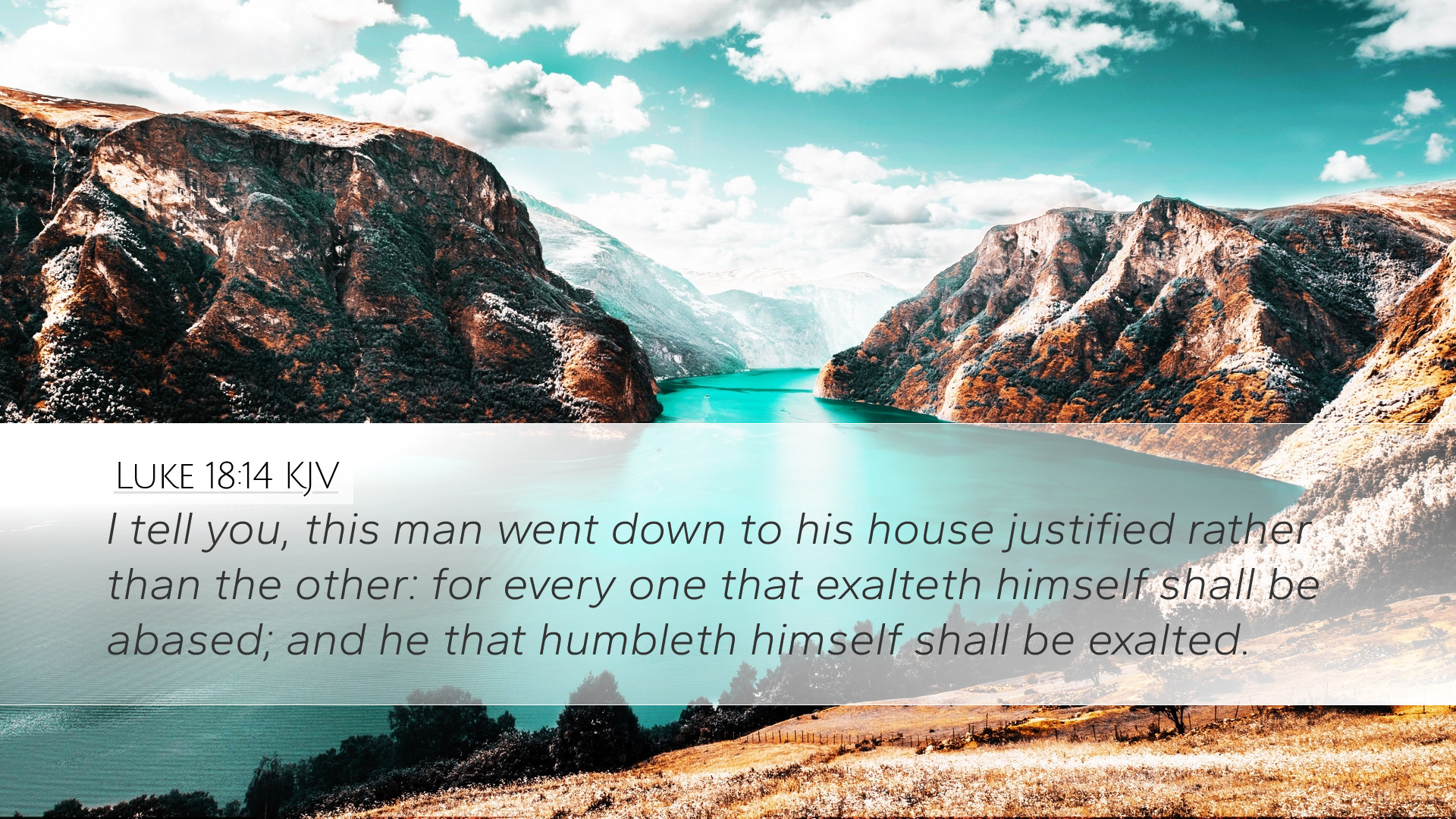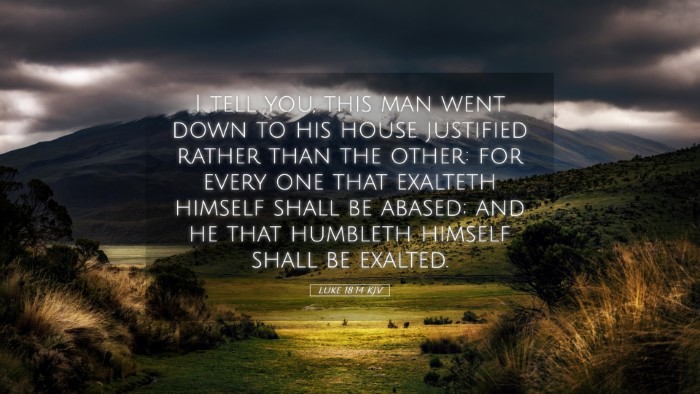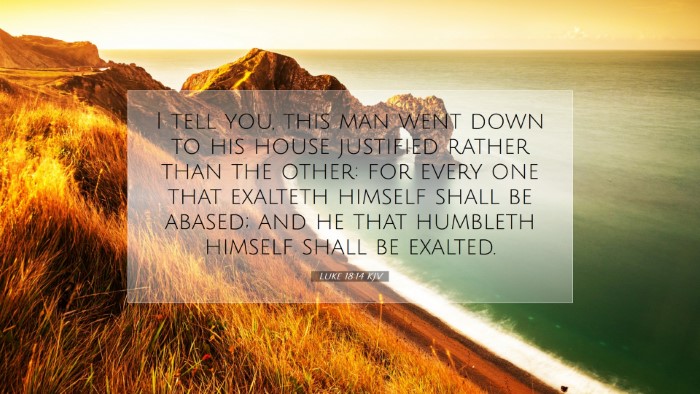Exegesis and Commentary on Luke 18:14
Luke 18:14 states: "I tell you, this man went down to his house justified rather than the other." This verse is a concluding statement to the parable of the Pharisee and the tax collector, which powerfully illustrates themes of humility and righteousness.
Contextual Overview
The verses surrounding this passage focus on the contrasting attitudes of two individuals during prayer: the Pharisee, who embodies self-righteousness and pride, and the tax collector, who represents humility and repentance. This parable is crucial in understanding the Kingdom of God and the criteria for justification before God.
Insights from Matthew Henry
According to Matthew Henry, the parable serves as a lesson that God's acceptance is based not on outward righteousness and perceived piety but on inward humility and acknowledgment of one's shortcomings. Henry emphasizes:
- Self-Righteousness vs. Humility: The Pharisee's prayer is marked by pride as he recounts his good deeds and compares himself favorably against others, especially the tax collector. In contrast, the tax collector's admission of sin and desperate plea for mercy exemplify true contrition.
- Justification: The term 'justified' signifies more than mere acquittal; it encompasses being made right with God. Henry suggests that true justification comes through sincere faith and recognition of one's need for divine grace.
- Divine Perspective: God values the heart's posture over ceremonial acts. The Pharisee's prayer, though correct in form, is rejected because it lacks the essence of humility before God.
Insights from Albert Barnes
Albert Barnes expounds upon the nature of justification in this verse, asserting that it is an act of God's grace rather than a result of human effort. His insights include:
- Contrasting Attitudes: Barnes notes that the tax collector's self-awareness and remorse are what draw him closer to God. Unlike the Pharisee, who focuses on his personal achievements, the tax collector's humility reflects true spirituality.
- Practical Application: Barnes encourages pastors and theologians to emphasize the importance of contrition in their ministries, advising that true repentance leads to justification and a deeper relationship with God.
- God's Mercy: The prayer of the humble tax collector resonates with the essence of the Gospel—God's merciful acceptance of the repentant sinner. Barnes highlights that mercy is the foundation of justification and should always be central in preaching the doctrine of salvation.
Insights from Adam Clarke
Adam Clarke provides a critical analysis of the implications of this parable, particularly in relation to societal perceptions of righteousness. Key points from Clarke include:
- Societal Views of Sin: Clarke points out that tax collectors were viewed with disdain in Jewish society, but Christ’s message reformulates who is worthy of God's grace. The parable subverts Jewish norms, illustrating that God’s favor is often extended to those whom society marginalizes.
- The Significance of Humble Prayer: Clarke emphasizes the value of sincere prayer, as demonstrated by the tax collector. His simple cry of "God, be merciful to me a sinner" encapsulates a profound understanding of personal need for grace.
- Salvation Through Faith: Clarke reiterates that justification comes through faith. He notes that while the Pharisee's actions were commendable in the eyes of man, they did not suffice for justification before God without the correct attitude of heart.
Theological Implications
The themes found in Luke 18:14 resonate deeply with the core tenets of Christian faith. Several theological implications arise from a thorough examination of the parable:
- Nature of God’s Grace: Grace is unmerited favor that cannot be earned through deeds. This foundational aspect of grace highlights the radical nature of the Gospel.
- Human Condition: The parable provides a mirror for self-examination, urging believers to confront their own pride and rely on God's mercy alone.
- Role of Faith: The necessity of faith is affirmed once more; genuine faith is characterized by humility and recognition of one’s sins.
Conclusions
In conclusion, Luke 18:14 serves as a profound reminder for all believers, especially those in ministry and theological education, that God's grace is available to the humble and broken-hearted. The journey toward justification is not a path of self-promotion or religious observance but one of surrender and acknowledgment of our complete dependence on God's mercy. This message should continually inspire and challenge pastors, students, and scholars alike to foster a spirit of humility in their walk with God.


